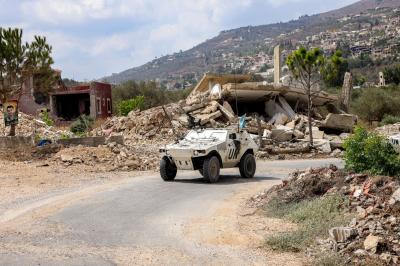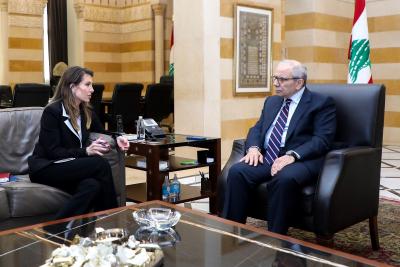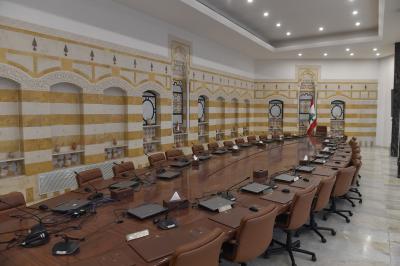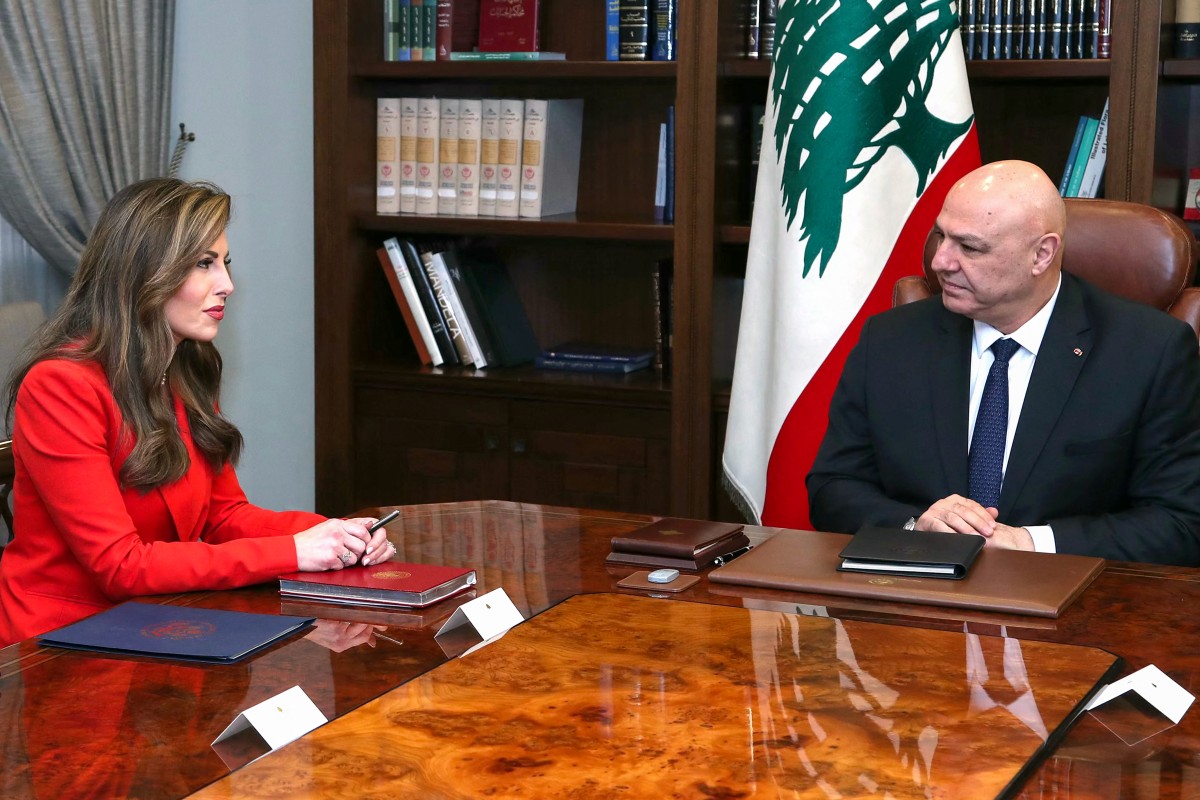As Lebanon braces for the anticipated visit of U.S. envoy Morgan Ortagus, Israel has escalated its assaults on southern villages and towns over the past two days. A series of airstrikes preceded Ortagus’s expected arrival next week described as an exploratory and fact-finding mission.
During her visit, Ortagus is expected to inquire about the Lebanese army’s progress in dismantling “Hezbollah’s” arsenal—a clear sign that the U.S. is placing Lebanon under scrutiny when it comes to the group’s weapons. Washington seems to be losing patience with the Lebanese government’s stalling tactics, and there is growing concern that Ortagus may present stringent demands under the banner of disarmament across all Lebanese territories. She is also reportedly set to raise issues related to reforms outside the framework of the International Monetary Fund, in a move that aligns with broader U.S. goals connected to the so-called Abraham Accords, initiated by President Donald Trump, which aim to normalize Arab-Israeli relations, with Lebanon increasingly viewed as part of the equation.
In a striking remark on Friday, a UNIFIL official warned, “The situation in Lebanon requires caution. A political solution to the southern conflict is essential, and we must work toward achieving it.”
Previously, Ortagus had hinted to Lebanese officials at the possibility of direct negotiations with Israel, under the pretext of delineating land borders. However, Lebanon’s official stance remains firm: there is no need to renegotiate borders that were previously demarcated. Instead, the handful of disputed points should be addressed through the United Nations, by the 1949 Ceasefire Agreement.
Lebanon’s position on Israel and the Abraham Accords notably diverges from that of other Arab countries. It has consistently referenced the 1949 Ceasefire Agreement with Israel, which set the framework for managing their shared border and remains the sole legal reference recognized by successive Lebanese governments.
Since the Trump administration, rapid regional developments have compelled Lebanon to reaffirm the importance of the ceasefire, viewing it as the foundation for any future agreement. During his visit to France, Lebanese President Joseph Aoun reaffirmed Lebanon’s right to reclaim its land occupied by Israel and reiterated the country’s commitment to the 1949 agreement—also cited in the 1989 Taif Agreement—as the legal basis for defining the Lebanon-Israel border relationship.
Progressive Socialist Party leader Walid Jumblatt, a longstanding political figure, has consistently emphasized the need to uphold the ceasefire. He frequently warns against Israeli attempts to alter its terms and insists that honoring the agreement offers a form of protection for Lebanon. Several Lebanese officials have echoed his concerns, calling for a halt to ongoing Israeli violations and demanding full withdrawal from occupied Lebanese territory.
The ceasefire agreement, forged through direct negotiations between Lebanon and Israel under UN auspices following the first Arab-Israeli war, called for the cessation of military operations and mutual respect for the 1923 international borders, used as the baseline dividing Lebanon from what was then Palestine.
Comprising eight core articles, the agreement includes detailed provisions governing the implementation of the ceasefire. One of its most critical stipulations prohibits any military or paramilitary entity—formal or informal—from either side from engaging in hostile actions, whether military or civilian, against the other. The agreement also forbids crossing the ceasefire line or violating the other party’s airspace or maritime territory.
Article Seven establishes a Joint Ceasefire Commission to oversee implementation, consisting of five members: two appointed by each side, with the fifth serving as chair, being a senior officer from the UN Truce Supervision Organization (UNTSO), appointed in consultation with both parties.
Despite this framework, the U.S. has attempted to establish a new committee focused on border demarcation, insisting that talks be held directly between Lebanon and Israel, without mediators. Lebanon has rejected this proposal, reiterating its adherence to the ceasefire as the only legal reference. Washington, however, appears intent on bypassing existing legal mechanisms, proposing alternative arrangements that undermine the original agreement.
To this day, the ceasefire agreement has not received serious attention from the United States, which continues to prioritize the implementation of UN Security Council Resolutions 1701 and 1559, as well as the most recent ceasefire accord. It remains unclear whether Ortagus will recommend reactivating the ceasefire commission, which still holds meetings in Naqoura—or if Washington will push to establish a new, U.S.-led committee, similar to the largely ineffective ceasefire monitoring committee, whose meetings are shrouded in secrecy and have failed to deter repeated Israeli attacks.
As American pressure mounts, one crucial question remains: will the 1949 ceasefire Agreement shield Lebanon from being swept into the Abraham Accords—or will Trump’s legacy of deals prevail, even if imposed by force?
Please post your comments on:
[email protected]
 Politics
Politics












